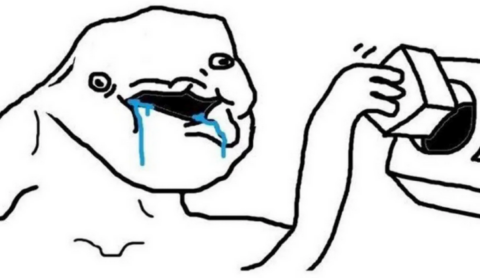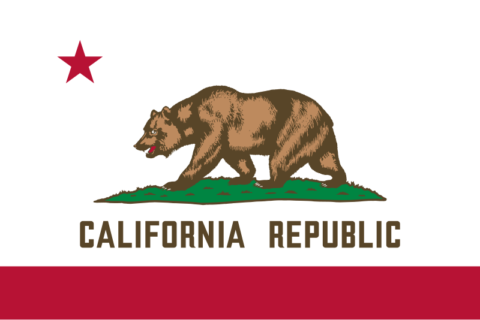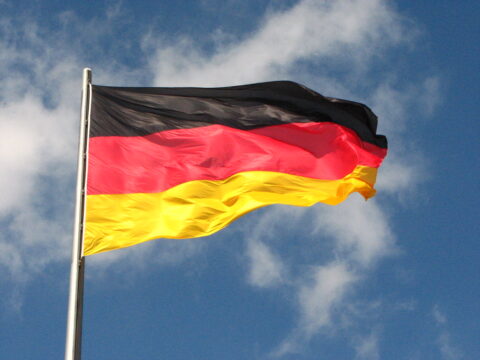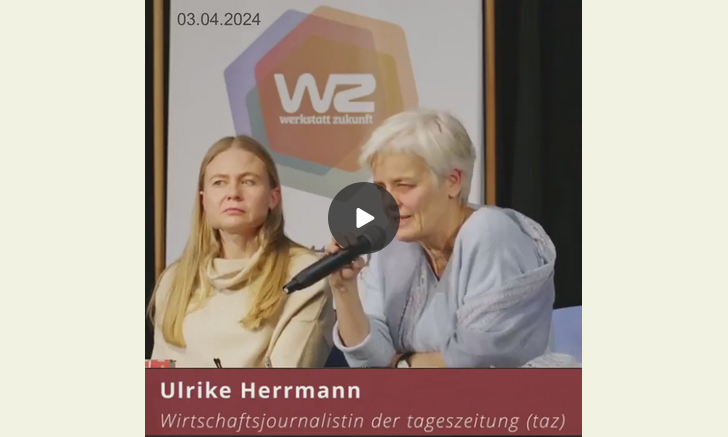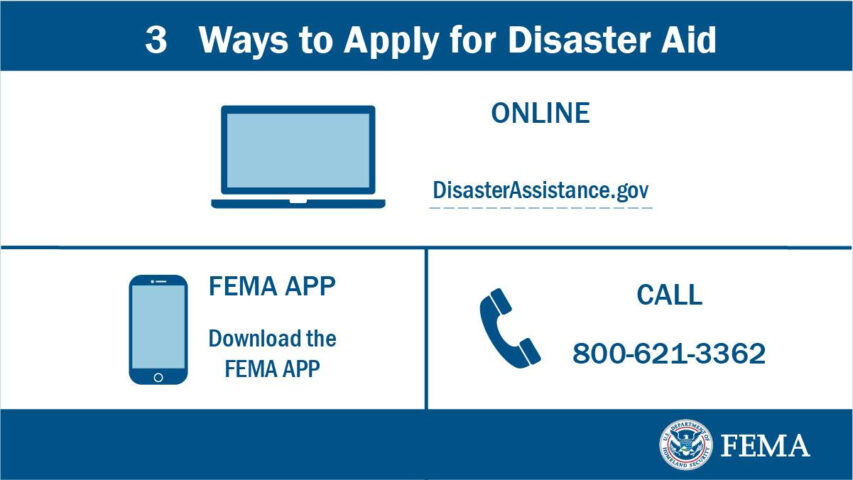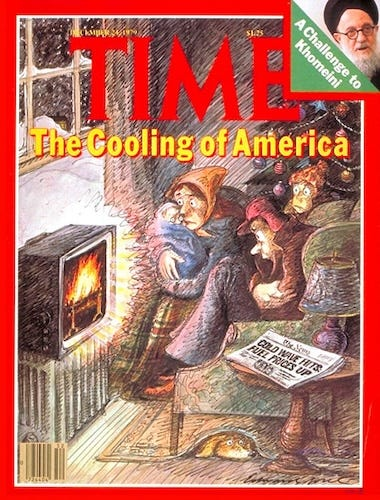In Sapiens: A brief history of humankind, Yuval Noah Harari locates the agricultural revolution to a period roughly some 10,000 years ago when humankind, having survived as a hunter and forager for over two million years, began to domesticate various plants and animals, thus to have a better control over its food supply. Harari calls this revolution “history’s biggest fraud” because he believes that what actually happened here is that plants, like wheat, domesticated human beings rather than the other way round, crops turning people into its willing slaves. Humans ended up doing back-breaking work in the fields so that crops like wheat could spread themselves over every corner of the planet.
Of course, the cultivation of crops enabled human beings to produce far more calories per unit of territory than foraging ever could. And this enabled the human population to expand exponentially, thus putting even more pressure on the food supply, thus necessitating an even greater emphasis on agriculture. Alongside this deepening spiral there were other unintended consequences as well. As Harari puts it: “Nor did the farmers foresee that in good years their bulging granaries would tempt thieves and enemies, compelling them to start building walls and doing guard duty”.
Giles Fraser, “The Magnificent Seven is a post-liberal idyll”, UnHerd, 2020-04-01.
March 27, 2025
QotD: Did humans domesticate plants, or was it the other way around?
March 18, 2025
“[T]he Liberals have no principles because it works“
The first act of our unelected prime minister was to performatively sign a piece of paper that supposedly eliminated the hated carbon tax. Well, part of the carbon tax. And not really eliminated eliminated, it just set the rate to zero percent. The carbon tax that the Liberals had proclaimed was essential to saving the entire planet from global warming. If this seems odd, buckle up, because this is just how the Liberal Party operates:
Obviously, I don’t believe Mark Carney nor the Liberal Party of Canada want to destroy the world.
Nor do I believe they could destroy the world, even if a supervillain gave them an unlimited budget in which to do so. After ten years when the supervillain checked up on the Liberals to see how the world-destruction plan was coming along, he’d find out that the world destruction equity subcommittee was waiting for a report from a sub-subcommittee responsible for convening a task force to authorize a panel to determine how to destroy the world in way which minimally impacted disadvantaged communities, but they’re having trouble finding francophone Saskatchewanians for the breakout sessions.
But I am somewhat startled to see how quickly Carney’s Liberal Party abandoned a signature policy it assured us was necessary to fight the existential threat posed by climate change:
This is like the National Socialist German Workers Party tweeting a meme cheering on Adolf Hitler for killing Hitler. (Given the state of Twitter these days, I wouldn’t be surprised if there actually is an official NSDAP account, but never mind.)
We’re left with two possibilities regarding the carbon tax policy promoted by the last Liberal Prime Minister and now abolished (or is it?!?) by the new Liberal Prime Minister:
- it never would have made much difference in the fight against climate change anyway, in which case it was always a waste of time and effort; or,
- it would have made a big difference in the fight against climate change, in which case Carney has decided it’s more important to win the impending federal election and take away his opponents’ talking points than to actually do something about a potential ecological crisis.
I’m not naive about politicians, even those I support, being hypocrites and flip-floppers. There may be some truly principled, ideologically consistent political parties out there, but they can hold their annual conventions in a Ford Club Wagon.
March 17, 2025
German politicians are willing to literally bankrupt the country to keep the AfD out of power
eugyppius is clearly no fan of Friedrich Merz, the CDU leader and presumptive next Chancellor of Germany, but even he seems boggled at how much Merz is willing to concede to his ideological enemies to get himself into that position:
Let us summarise, briefly, what has happened so far:
- The CDU are the party of fiscal responsibility. His Triviality the Pigeon Chancellor Friedrich Merz presented himself throughout the campaign as an unusual fan of Germany’s constitutionally-anchored debt brake. He told everybody that he could not imagine ever borrowing in excess of 0.35% of annual GDP, so interested was he in limiting the tax burden of future generations.
- All of the while, Merz and his advisers were scheming in secret about how they might overhaul the debt brake, firstly because they could not give the slightest shit about the tax burdens of future generations, and secondly because they spent the months since November 2023 observing what happens when a government that has no ideas is also deprived of money. “I have no ideas,” Merz said to himself during this time. “What happens if like Olaf Scholz I also end up with no money?”
- Exactly two weeks ago, U.S. President Donald J. Trump and Ukrainian President Vladimir Zelensky had a verbal spat in the Oval Office. This spat put the fear of God into the Eurocrat establishment, for whom the Ukraine war has become a sacred and essentially religious cause. Merz capitalised on the panic to unveil his massive debt spending plan. He and his would-be coalition partners, the Social Democrats, announced that they wished to spend 500 billion Euros of debt on “infrastructure” and untold hundreds of billions of debt on defence. This would entail adjustments to the debt brake, in the same way setting your house on fire would entail adjustments to your living arrangements.
- This massive spending package will require a constitutional amendment, which can only be achieved with a two-thirds vote of the Bundestag. In the newly elected Bundestag, Die Linke and AfD will be in a position to block this amendment and Merz will be stuck with the debt brake. Thus Merz wants to break the debt brake in the final days of the old Bundestag – a strategy that has put him in the amazing position of groveling before the election’s biggest losers. Specifically, Merz has spent the past few days feverishly negotiating with the Green Party, who will not even have any role in his government, just to get them to sign off on his insane spending plans.
I wrote a lot here and on Twitter about the election nightmare scenario I called the “Kenyapocalypse” – a hypothetical in which the Greens and the Social Democrats would each be too weak to give the Union parties a majority on their own, such that Friedrich Merz would be forced to negotiate a coalition deal with both of them at once. In the end, Kenyapocalypse did not happen; the CDU avoided it by a razor’s breadth. Merz, however, turns out to be such a monumental retard that he has managed to recreate a simulacrum of Kenyapocalypse for himself. The man has been on his knees kissing not only Social Democrat but also Green ass for days. He has been begging the Greens to sign onto his debt plan, and the Greens have finally agreed, in return for the following concessions:
- The “defence” funding that will be exempt from the debt brake is to be defined as widely as possible. All kinds of things will count as debt brake-exempt “defence” spending now, probably including various climate nonsense.
- The 500 billion-Euro “infrastructure” debt is to include 100 billion Euros specifically earmarked for the “Climate and Transformation Fund” – the central financial instrument of the energy transition. This is basically infinity windmill money, you might as well set it on fire. Beyond this specific allocation, any projects that contribute to making Germany “climate neutral by 2045” will also be eligible for the 500 billion-Euro exception. This whole thing will be a massive wad of debt for Green nonsense and I would like to take this moment to laugh at everyone who told me how happy I should be that Merz was trying to fix Germany’s bridges with this debt bullshit. Nothing of the sort is going to happen.
- You will note that the explicit goal of achieving “climate neutrality” by 2045 is slated to be among the very few positive political points anchored in the German constitution. “Climate neutrality” is a more expansive concept than mere “carbon neutrality”, or net zero. It describes a utopian state of affairs in which human actions have no influence on the climate whatsoever.
These are prizes the Greens could not achieve even at the height of their influence, in the 2021 elections. Strictly speaking, the entire traffic light coalition fell apart over a matter of 3 billion Euros. Now the Greens are getting 100 billion Euros for free, all because Merz is determined to become Chancellor whatever the cost.
March 3, 2025
Is DOGE merely uncovering what used to be called “honest” graft?
Jon Miltimore explains where the expression “honest graft” came from and gives examples of what the DOGE investigations have turned up so far:
In 1905, George Washington Plunkitt made arguably the most famous defense of political graft in American history.
“Everybody is talkin’ these days about Tammany men growin’ rich on graft,” the New York state senator and Tammany Hall member wrote, “but nobody thinks of drawin’ the distinction between honest graft and dishonest graft”.
Plunkitt was responding to The Shame of the Cities, a book by journalist Lincoln Steffens that exposed sweeping political corruption in U.S. cities.
The ward boss’s shameless defense of “honest graft”, which is still assigned to undergraduates a century after Plunkitt’s death, comes to mind when looking at the fraud, waste, and abuse Elon Musk’s Department of Government Efficiency and others are uncovering.
To take but one example, consider the billions of dollars in taxpayer funds the Environmental Protection Agency awarded last year to Power Forward Communities. If you’ve never heard of the nonprofit group, you’re forgiven. Almost nobody has — because it didn’t exist until late 2023.
Power Forward Communities had no footprint, online or otherwise, until October 2023, when it was announced as part of the Rewiring America program, an organization linked to former Georgia Democratic gubernatorial candidate Stacey Abrams, which says its mission is “all about Rewiring America’s values, people, and culture.”
Less than a year after its creation, Power Forward Communities was awarded $2 billion via the EPA’s National Clean Investment Fund — even though it reported just $100 in revenue during its first three months of operation.
The payment, which is slated to continue through June 2031, caught the attention of Lee Zeldin, the new EPA administrator.
“It’s extremely concerning that an organization that reported just $100 in revenue in 2023 was chosen to receive $2 billion,” Zeldin said.
Indeed. It’s graft on a scale the Tammany Hall charlatans couldn’t have imagined.
Historical sources say 19th-century politician Boss Tweed and his ring of cronies took in at least $50 million in corrupt money in backroom deals, kickbacks, and skimming before Tweed was convicted of larceny and forgery in 1873 and fled to Cuba, and later Spain. In 2025 dollars, that’s about $1.3 billion — considerably less than the single payoff former President Joe Biden’s EPA awarded Power Forward Communities.
January 30, 2025
Proposed California legislation to allow “Big Oil” to be sued for “climate change damage … regardless of cause”
California is a lovely place. I’ve only ever been there once, back in January 1991 but it was a wonderful (business) trip. California’s political “leaders” on the other hand are clearly in need of immediate re-institutionalization:
First, the madness of the California state legislature is richly displayed in Senator Scott Wiener’s remarkable new bill that would allow people to sue the oil industry because climate change damaged their property, via “natural catastrophe, including a hurricane, tornado, storm, high water, wind-driven water, tidal wave, tsunami, earthquake, volcanic eruption, landslide, mudslide, snowstorm, or drought, or, regardless of cause, a fire, flood, or explosion”.
I hope you caught that “regardless of cause” thing, there at the end. If this bill passes — it won’t, being mostly a theatrical performance, but let’s pretend — Californians will supposedly be able to sue Chevron or ExxonMobil (and so on) because a flood or fire damages their property, which implicates fossil fuel-induced climate change, regardless of the cause of the flood or fire.
- I threw matches on your couch
- Climate change
- Big Oil burned your couch
On the hook: anyone who sold “fossil fuels” in California “since the year 1965”, although a lawsuit has to be brought within three years of the discovery of the damage caused by the fossil fuel’s effect on the climate.
Favorite part, and look at item #2 (click to enlarge):
I’m not a lawyer, but I have doubts about declaring in a law that you can’t question the constitutionality of the law. We had similar legal doctrines on the playground in elementary school, despite which some members of the first-grade community controversially persisted in utilizing the disallowed tag-back.
Wiener’s press release on the bill is … very special. California government knows why the recent fires were so harmful, and none of it involves California government. Sample quote from, please help me, the state senator who represents my district:
“The Eaton Fire destroyed over 9,000 structures in my District, wiping out almost the entire town of Altadena, leaving thousands of my residents calling for justice and accountability,” said Sen. Sasha Renée Pérez (D-Pasadena). “Our communities have never seen anything like this in urban Los Angeles. The reality is that climate change is here and will continue impacting communities everywhere. What makes this worse is decades ago, Big Oil knew this would be our future, but prioritized lining their own pockets at the expense of our environment and the health of our communities. The Affordable Insurance and Climate Recovery Act will hold the oil industry responsible for the damage it has inflicted, and provide relief for future communities impacted by climate disasters.”
Decades ago, Big Oil knew Altadena would burn, but they did it anyway. Case closed.
I’m also quite fond of the senator’s use of “my residents”, which sounds like she’s buying up dead souls to expand her vassalage. I pay her in grain, of course.
January 19, 2025
California’s wildfire plight
Theophilus Chilton on the end of California dreamin’:
Southern California has had a REALLY rough week. Wildfires, started by arsonists and driven by the Santa Ana winds, have burned thousands of acres in the city and county of Los Angeles and destroyed over $150 billion worth of property (and counting). As I write this, the fires still burn and largely remain uncontained, even as new blazes break out. It is a disaster of epic proportions, striking one of the richest and most economically and culturally relevant portions of the country.
Never ones to let a crisis go to waste, the Left responded to this disaster by … focusing on climate change. Not empty fire hydrants, not drained reservoirs, not incompetent leadership, but climate change. These fires, we have been breathlessly assured, are the result of ever-worsening climatic conditions in the region, drying it out and making it susceptible to this kind of affliction. Never mind that observers since Spanish times consistently noted the same kind of weather conditions and hazards that we see today, which suggests that maybe things aren’t actually changing all that much. Of course, those who are blaming climate change fail to recognise the fundamentally chaotic, nonlinear nature of the Earth’s biosphere and the interactions of its constituent parts, something governed by complexity (in the chaos/complexity theory sense of the term). As a result, it’s somewhat foolish to try to draw a direct, causal link between two variables (such as atmospheric CO2 content and temperature) which depend upon nonlinear interactions with hundreds of other factors. Thankfully, they don’t seem to be getting much traction with this.
So what did create the conditions that burned down Los Angeles?
First of all, there was the implementation of a number of policies driven by the state’s radical environmentalist lobby. Thanks to the fanatics, common sense policies that would help to mitigate the region’s inherent fire hazard went undone. Regular controlled burns of underbrush are a standard conservation technique in dry areas that help to thin out brush and prevent wildfires from getting out of control. Building a sufficient number of desalination plants is a good way for coastal desert areas to provide themselves with abundant fresh water for things like drinking, watering crops, filling reservoirs, and fighting fires. In fact, filling reservoirs for future needs would make a lot of sense. But all of these things are “unnatural” and might have “negative impacts” on local wildlife and whatnot.
Another contributory issue is the state’s policies towards the chronically homeless and its de facto sanctuary status for illegal aliens. The Reagan-era deinstitutionalisation of the homeless has been a nationwide disaster for years and California’s particular policies have made the situation in their state even worse. For decades, California has regularly seen wildfires caused by untended campfires started by homeless junkies getting out of control, which the state’s liberal approach to its indigent population has only made more prevalent. Likewise, California’s harbouring of illegal aliens has created a situation in which the state is flooded with masses of hostile foreign elements, some of whom have been caught starting fires all around the LA basin and creating the current catastrophe.
Then there is the fact that California has systematically implemented a set of DEI policies for its governmental workers, including its firefighters. As a result, the state’s leadership in the relevant departments is very good at “promoting inclusion,” but not so good at dealing competently with emergencies when they take place. Indeed, Los Angeles’ mayor Karen Bass and LAFD Chief Kristen Crowley presided over budget cuts for the city’s firefighting capabilities while adding layers of “diversity and inclusion” bureaucracy aimed at systematically de-white-maleing the department and depriving it of the demographic most prone to self-sacrifice and overall technical competence. That reflects trends across the board in which the state and the city have regularly spent more on gay choirs and social justice artwork than they have on necessary functions of government.
December 17, 2024
The rejection-in-advance of Bovaer as a “climate-friendly” “solution” to the “problem” of climate change
At Watts Up With That?, Charles Rotter documents yet another imposed-from-above bright idea that consumers are already eager to reject:
When global elites and bureaucrats decide they must “fix” the world, the results often speak for themselves. Take the latest technocratic debacle: Bovaer, a feed additive designed to reduce methane emissions from cows, marketed as a “climate-friendly” solution. It’s now being shelved by Norwegian dairy producer Q-Meieriene after consumers flatly rejected its so-called “climate milk”.
This is more than a simple story of market rejection. It’s a cautionary tale of what happens when governments, corporations, and globalists push policies and products that tamper with the food supply to address a problem that may not even exist.
The Quest to Solve a “Crisis”
Bovaer, developed by DSM-Firmenich, has been touted as a game-changer in the fight against methane emissions — a major target of climate policies. The additive is said to suppress a key enzyme in the cow’s digestive process, reducing methane emissions by up to 30%. Regulatory bodies in over 68 countries, including the EU, Australia, and the U.S., have approved its use.
But let’s step back for a moment. Why are we targeting cow burps and farts in the first place? Methane is indeed a greenhouse gas, but it’s also a short-lived one that breaks down in the atmosphere within about a decade. Moreover, cows and bison have been emitting methane for millennia without triggering apocalyptic climate shifts. Yet suddenly, livestock emissions are treated as a planetary emergency demanding immediate action.
This myopic focus on cow methane is a prime example of how climate zealotry warps priorities. Rather than addressing real and immediate issues — like the energy crises their own policies create — governments and globalists have decided to micromanage how your milk is produced, all to reduce emissions by an imperceptible fraction of a percentage point.
Consumer Rebellion
The backlash against Bovaer has been swift and fierce. In Norway, Q-Meieriene began using the additive in 2023, branding the resulting product as “climate milk”. The response? Consumers overwhelmingly rejected it, leaving supermarket shelves stocked with unsold cartons while Bovaer-free milk flew off the shelves.
Facing dismal sales, Q-Meieriene recently announced it would discontinue the use of Bovaer, stating:
Demand for Q climate milk has not been high enough to continue production … we phased out the use of methane suppressants in cow feed and are putting this project on pause.
https://www.nettavisen.no/nyheter/ville-redde-klimaet-med-prompe-fri-kumelk-snur/s/5-95-2166980
This is not merely a marketing failure. It reflects a broader consumer revolt against the technocratic imposition of “solutions” no one asked for. People are increasingly skeptical of being told that their daily choices — what they eat, how they travel, how they heat their homes — must be sacrificed on the altar of climate orthodoxy.
November 6, 2024
Running out of minerals means we’re all going to dieeeeeeeeee!!
Tim Worstall responds to another pants-wetting panic attack that we’re running out of atoms and that means we’re all going to die unless we do this thing I wanted you to do anyway:
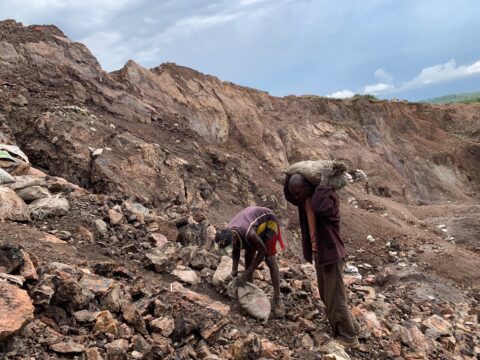
“Artisanal cobalt miners in the Democratic Republic of Congo” by The International Institute for Environment and Development is licensed under CC BY 2.5 .
There’s a guy working up in Finland who keeps trying to tell us that we’re all about to run out of lovely metals. Therefore — as with the Club of Rome beforehand, Blueprint for Survival and all those guys — we’re all gonna die.
Aiee, eh?
Now it is possible to work through all his assumptions and nip at them in detail. For example, he assumes we need about 20 million tonnes of lithium in order to replace the global internal combustion engine fleet with battery powered. Not a bad assumption. The Tesla Master Plan 3 comes to the same answer. But if we want to have weeks and weeks of battery power for the whole of society we’re going to need much more than that. Which is a problem, mineral resources are only around 90 million tonnes, so, we’re stuffed.
And, well. Here’s the problem. We’re all — including Michaux — using United States Geological Survey Numbers. In 2023 lithium:
Owing to continuing exploration, identified lithium resources have increased substantially worldwide and total about 98 million tons.
Owing to continuing exploration, measured and indicated lithium resources have increased substantially worldwide and total about 105 million tons.
Wait, what? We can get more mineral resources if we go looking for them? Well, if that’s true then the size of mineral resources cannot be the limitation on how much is out there, right?
This then brings us to the basic mistake that has been made here. We’ve been through this here a number of times.
Figures 28 & 29 shows the needed quantity of metal to phase out fossil fuels (assuming all four power storage buffer capacities) is compared against the total metal content in the whole planetary environment, including the deep ocean polymetallic nodules under sea resources (Hein et al. 2020). So, Figure 28 shows reported mineral reserves plus estimated mineral resources on land plus estimated undersea mineral resources. This is the summation of mineral reserves, resources, on land and under the sea, in the planetary environment. Even with this extreme summation of conventional and unconventional sources, there was not enough copper, nickel, lithium, cobalt, or vanadium to manufacture even just the first generation of renewable technology to replace the existing fossil fuel industrial system.
That’s on page 240 and yes, I had to read (OK, speed read/skim) to get to his simple statement of his mistake. You owe me guys, 239 pages worth.
He’s right that mineral resources can be converted into mineral reserves by the application of time and effort — capital, really. But he thinks that mineral resources are the definition of the mineral deposits that exist. Which just ain’t true — mineral resources are mineral deposits that people have applied time and effort — capital really — to defining. That’s how mineral resources, as defined by our common source at USGS, can increase year on year.
November 1, 2024
“[H]er plan will mean the obliteration of your savings, the end of banks and even the destruction of ‘money as we know it'”
It’s astonishing how many highly placed bureaucrats, NGO functionaries, and the very, very wealthy are super gung-ho for reducing the rest of us to the status (and living conditions) of medieval serfs:
This week, VW announced plans to cut tens of thousands of jobs and to close three factories. That is a very big deal, because they have never closed a single German factory before. I try to avoid economic topics, but this story is so much bigger than economics. As Daniel Gräber wrote in Cicero last month, “the VW crisis has become a symbol for the decline of our entire country“.
The Green leftoid establishment are eagerly blaming management for these failures, which is on the one hand not entirely wrong, but on the other hand not nearly an absolution. The German state of Lower Saxony holds a 20% stake in Volkswagen, and so they also manage the company. Recently, in a fit of virtue, they placed a Green politician – Julia Willie Hamburg – on its supervisory board. Hamburg does not even own a car and has used her position to argue that Volkswagen should regard itself not as an automobile manufacturer but as a “mobility services provider” and shift its focus away from “individual transport”.
The absurdly named Julia Willie Hamburg is merely symptomatic of a broader phenomenon. Germany has succumbed to political forces that have nothing but indifference and disdain for the industries that have made us prosperous. Our sitting Economics Minister, Robert Habeck, gave an interview to taz in 2011 in which he said that “fewer cars will not lead to less economic growth, but to new industries”, and attacked “the old growth theory, based on gross domestic product“. And behind Green politicians like Habeck are even more radical forces, like Ulrike Herrmann, the editor of taz, for many years a member of the Green Party and also an open advocate of wide-scale deindustrialisation. Because I am going to quote Herrmann saying some very crazy things, you need to know that she is in no way a fringe figure. She appears regularly on all the respectable evening talkshows and every politically informed person in the Federal Republic knows who she is.
Herrmann has outlined her political views in various books like The End of Capitalism: Why Growth and Climate Protection Are Not Compatible – and How We Will Live in the Future. From these monographs, we learn that Herrmann sees climatism as a means of imposing a centrally planned economy in which we will own nothing and be happy. Happily, Herrmann also talks a lot, and in her various speeches and interviews she states her vision for decarbonising Germany in very radical terms. I am grateful to this twitter user for highlighting typical remarks that Herrmann delivered in April of this year before a sympathetic audience of climate lunatics.
There, Herrmann elaborated on her vision for a future economy in which all major goods would have to be rationed:
Talking about rationing: It’s clear that if we shrink economically, we won’t have to be as poor as the British were in 1939; rather, we’d have to be as rich as the West Germans were in 1978. That is a huge difference, because we can take advantage of all the growth of the post-war period and the entire economic miracle.
The central elements of the economy would have to be rationed. First of all, living space, because cement emits endless amounts of CO2. Actually, new construction would have to be banned outright and living space rationed to 50 square metres per capita. That should actually be enough for everyone. Then meat would have to be rationed, because meat production emits enormous amounts of CO2. You don’t have to become a vegetarian, but you’ll have to eat a lot less meat.
Then train travel has to be rationed. So this idea, which many people also have – “so okay then I don’t have a car but then I always travel on the Intercity Express trains” – that won’t work either, because of course air resistance increases with speed. Yes, it’s all totally insane. Trains won’t be allowed to travel faster than 100 kilometres per hour, but you can still travel around locally quite a lot. This is all in my book, okay? But I didn’t expand on it there because I didn’t want to scare all the readers.
At this point Herrmann begins to cackle manically, ecstatic at the thought that millions of Germans will be stuck riding rationed kilometres on slow local public transit.
October 5, 2024
Scary words of 2024 – “Luckily, FEMA is on the case”
As I recounted a few days back, I was relieved to hear from my friend in the Asheville NC area after the region absorbed the damage from Hurricane Helene. Tom Knighton had a similar experience:
A friend of mine lives at the edge of where Helene did her worst. He just got power back on yesterday and was finally able to let me know he was OK. I was worried for obvious reasons.
In the deepest, worst parts of where the storm ripped things to shreds, they’re trying to just make it to the next day. They’re struggling to find clean drinking water, food, shelter, the works.
Luckily, FEMA is on the case.
They took to social media yesterday and posted this crap.
That’s right. People who don’t have internet, phone service, or electricity should call, download an app, or log onto the FEMA website.
I won’t ask how stupid can the federal government be, but I’m worried they’d take it as a challenge.
Back in the day, FEMA would roll into a disaster area with paper applications and facilitate all of that right there. While the internet and smartphones are glorious things, this is a prime example of when they’re a terrible option for people.
Right now, American citizens are struggling. They’re thankful to be alive and are working their butts off to keep themselves alive. They’ve paid taxes their entire lives, and now that they need some of theirs back, their federal government is telling them to do what is physically impossible for many of them.
I can’t help but see this and think that their claims of having enough money in spite of spending hundreds of billions on illegal immigrants ring a tad hollow.
If they have the money, why not put boots on the ground getting people signed up for any assistance they may be entitled to?
Honestly, while I’ve commented before about the gross incompetence of the government in disaster response — and I’ll agree that maliciousness is most definitely a possibility, if not a probability in these instances — this is just weapons-grade … whatever, be it stupidity, meanness, or a combination of both.
Heads should roll.
Update: David Warren notes that it’s not merely FEMA incompetence, it’s active deterrence for private relief efforts by all federal agencies.
From the Internet (for instance updates from Elon Musk), we note that non-governmental charitable efforts are not merely “discouraged”. The government is seizing and impounding desperately-needed local goods and services. The rest of the federal bureaucracy is also “chipping in”, to stifle relief efforts. The FAA, for instance, is restricting private aircraft with supplies, and making it almost impossible to fly drones, demanding that flights be individually approved by their slothful trolls. Those who wish to bring help to the survivors have both the wreckage of the storm, and government agents to block them.
This is how things work in this world, and have worked, since the Reformation, when the state took over welfare, hospitals, schools, and all other eleemosynary institutions. Rather than allow inspiring expressions of Christian charity, they became the means for cynical political posturing and control. And with “democracy”, we have detailed laws and policies, to prevent the people from helping themselves — as they would do, by laws of nature.
October 1, 2024
Devastation in the Carolinas
My oldest friend moved to the United States many years ago, moving around the country as his job dictated, but a few years back he and his wife found their perfect house near Asheville, NC. We had emailed to see how they were doing, but got no answer. Yesterday, I got a call from my friend’s cell phone to say that he and his wife were fine and they’d taken in an elderly neighbour until things get back to normal, but they currently don’t have electricity, land line telephone, or municipal water, but they’re otherwise fine. Their house is well above flood level, and he has sufficient camping supplies to keep them going for a while. He loaned his chainsaw to another neighbour who was trying to organize work parties to cut away fallen trees and branches and get more of the local roads open again (my friend recently had lyme disease and doesn’t want to trust his hands doing something as risky as running a chainsaw). We kept the call as short as possible, as he’ll have to manually recharge his phone until power is restored.
Virginia Postrel is originally from that same area of western North Carolina and northwestern South Carolina and reports on how her family in the area is doing in the aftermath of Hurricane Helene:

One of the many examples of the “horizontal forest” on nearly every road in Greenville, SC.
Photo by Virginia’s brother Sam M. Inman IV.
If you read my autobiographical reminiscences, you may have realized that I have family in Upstate South Carolina and western North Carolina, which have been hit hard by the unexpected ferocity of Hurricane Helene. Power has been out in Greenville, SC, for days and roads are nearly impassable because of downed trees on nearly every block.
My brother Sam, who went out in a truck on Friday to buy gasoline for his generator, said only about half the stations that had working pumps and were running out of gas quickly. “Lines of cars around the block … reminiscent of the 1970s”, he texted. He went out again today and found a stark difference between local QuikTrip stations and others. At QT, the lines were longer but flowed faster because stations had closed all but a single entrance and exit. Elsewhere, stations were chaotic traffic jams. At one point, he found himself unable to exit after fueling up because the cars behind and in front of him left no to maneuver room. (He persuaded the one behind him to ease away from his bumper.)
The assisted living place where my mother lives has a generator and at first continued to operate its kitchen and elevators. By today, however, the generator had become unreliable, the lights were flickering, few employees could get to work, and the kitchen was offering dry Cheerios for breakfast. Sam brought our mom to his house, which has no power. He later realized that he needed to return to get her medicine, which usually is delivered daily. I can only imagine how residents who don’t have local family — or who are in the memory care wing! — are managing.
Even people who were prepared with generators, many bought after a blizzard 20 years ago, needed gasoline to power them and, they soon realized, adapters to connect them to household appliances. The adapter aisle at Home Depot was quickly depleted.
The good news is that food is available. Grocery stores are operating more or less as normal, assuming you can get to them. When you sell frozen food, you apparently install large, reliable generators.
Meanwhile, my cousin in Asheville finally got weak cell signal back today. We’d been unable to communicate with her before now. With her husband, pets, and 95-year-old mother, she’s evacuating to Winston-Salem through the weekend, hoping Duke Power will live up to promises that power will be restored by Friday but preparing in case it takes a few days longer.
Although terrible in some areas, the flooding isn’t as bad as it might be, thanks to the region’s many man-made lakes. They absorbed water that otherwise would have flowed into populated towns.
September 28, 2024
QotD: Doom! Doom! And more Doom!
Monty used to use this image at Ace of Spades H.Q., and I certainly think it’s appropriate to include it here.
Lately I’ve become an awful old woman. My reaction, during the con, to the little card hotels leave in your bathroom, in the hopes that you’ll save them laundry money — you know the one that says that if you want to help save the Earth or the Environment (I don’t remember which, precisely, these pagan divinities all run together in my head) you’ll hang up your towel and use it another day — was to sigh and say: Deary, the Earth has been here for billions of years before I was born. It will be here for billions of years before my very atoms have been dispersed in its general Earthness. I can’t save it. There isn’t a tupperware large enough. And besides where would I put it? Who would dust it?
In the event, the only audience for my musings was my husband who consented to chuckle at it, as he went on. And we didn’t hang up the towels. We might have, had they made a sensible business appeal “if you save us money, we’ll be able to keep our prices lower” but we’re not at home to religious pandering to religions not our own. As far as I’m concerned they might as well ask me not to use electricity so as to spare the feelings of Zeus, god of thunderbolt.
So, yes, you see, I have become an awful woman. Or if you prefer, I’ve become a fool or a sadist in Heinlein’s definition of such: Someone who tells the truth in social situations.
But you see, I am so very tired of all the genuflecting and bowing to the doom du jour, as well as the market distortions, worsening of problems and outright damage to people and deaths or grievous arm (not to mention not being born) while trying to avoid largely imaginary dangers and issues.
What do I mean? Well, how many people had no children because they were pounded about the face and head with the impending doom of “overpopulation”? How many of those people, now nearing their last decades, bitterly regret the childlessness? Worse, how many people in how many third world countries were encouraged to be sterilized due to both the “coming doom” of overpopulation, and the horrific mid-century misapprehension that children caused poverty? How many women in China were forcibly aborted? How many toddlers confined to dying rooms? How many women in India were strongly persuaded to abort female children, or expose unwanted ones newly born? (Yes, I know it might have happened anyway, but the westerners were encouraging people to have fewer and fewer children, which only fed that nonsense.)
Other dooms? So many dooms, so little time to catalogue them. When I was little, I knew I’d probably starve or die of thirst due to overpopulation. What was worse, it was overpopulation far away, since most people near me couldn’t afford more than one or two kids, if they ever hoped to live a middle class life. (Spoiler: it was taxes, requiring work from both parents that caused poverty, not an excess of children.) I also expected to freeze in the coming ice age, caused by all the pollution, from people making things in factories, having cars, and using electrical light. Also, as it happened, in the seventies we were told fossil fuels were running out, so while we were freezing, we wouldn’t even be able to take a flight somewhere warmer, to escape the advancing glaciers. But that was all right, because we were all going to die in a nuclear exchange that would happen any day now, in a conflagration between the USSR and the US, whom we were assured were absolutely equal in morality, and both just wanted supremacy for … no reason really.
Of course, the things urged to stop all of this ranged from criminal — the aforementioned forced abortions and killing of children — to the merely dangerous — urging the nuclear disarmament of the West (mostly propaganda from the Soviet Union, mind) which we were assured would bring about peace and not world communism (which in the way of such things would shortly after be followed by world famine and world depopulation.)
By the time the Gaia cultists flipped from a fear of freezing to a fear of boiling, I only half went along, and only until I realized once more it made no sense whatsoever.
Sarah Hoyt, “Doom Doom Doom!”, According to Hoyt, 2024-06-26.
September 19, 2024
“This is the Law of Unintended Consequences in action”
Tom Knighton provides a wonderful example of “be careful what you wish for”, especially in the rich virtue-signal territory of the “green transformation”:

“Artisanal cobalt miners in the Democratic Republic of Congo” by The International Institute for Environment and Development is licensed under CC BY 2.5 .
… it seems our glorious green future now comes with more child labor!
A new report from the Department of Labor raises tough questions about whether and to what extent forced labor and child labor are intertwined with climate-friendly technology.
The department released a report this month finding that several minerals that are key components of electric vehicles and solar panels may be produced through these unethical labor practices.
The findings point to major ethical quandaries surrounding the ongoing energy transition. Climate change, if not addressed, endangers many of the world’s most vulnerable people. At the same time, the report raises serious human rights concerns about the technology being used to address it.
[…]
Whoops.Here’s the thing, cobalt and nickel are kind of important for this sort of thing, so we have to get them from somewhere and the one attempt to mine cobalt here in the United States fell flat. Why? The price of cobalt dropped. It was no longer profitable to try to mine it in the United States.
But in poor countries, it was still plenty viable.
Yet while we view child labor as unethical, we have to remember that our society is rich enough that we can afford to hold that belief. Now, I share it and I’d rather kids be kids, and worry about things like school, video games, television, and that sort of thing, but the truth is that when you’re barely able to feed yourself, you need every penny you can get.
That means kids going out to work.
That means doing some grueling, back-breaking, nasty work like mining stuff like cobalt.
It means paying for dirty, nasty strip mining so you can convince yourself and your friends that you’re better than those of us who still prefer a gasoline- or diesel-powered car.
All around us, we tend to be oblivious to the reality of the rest of the world. We simply think something should be so and then just act like they are. We ignore what all might be required to make that something so.
This is the Law of Unintended Consequences in action.
QotD: “Solutions” to climate change
Everyone who isn’t an idiot knows the climate change hoax was never about “science”. That’s a hack lie they use to shut you up when you point out that the ice age, floods, and mass polar bear die-offs they are always promising never, ever seem to happen. It’s a deliberate scam that blends leftism, hysterical hyperbole, and outright fraud into a gooey pudding designed to fill the spiritual void in empty-souled western suckers while providing a tool for our global leftist establishment to steal more of our money and freedom.
Quick: name a climate change remedy that does not result in you being less free and/or paying more money. It’s actually remarkable. Every single thing that we absolutely must do right now no time to wait how dare you pause to think how dare you is something leftists always wanted but could never talk people into doing until the threat of weather vengeance started lurking around the corner.
You can’t name any. There aren’t any, because the weird climate cult is not about weather but about separating you from your liberty and loot. And, apparently, your life if you won’t obey.
Kurt Schlicter, “TIME’s Commie Nag of the Year Can Go Pound Sand”, Townhall.com, 2019-12-15.
September 6, 2024
Climate catastrophism in a phrase – “The sky gods are angry and we’re all gonna pay”
Relax, weather-panic true believers — this is a post from Jim Treacher who gets paid to write funny stuff. This means you can mock everything in it as “fake news”:
I’m pretty old at this point, and for my whole life, the media has been predicting the weather will kill us all.
When I was a kid, the news was all about the coming Ice Age.
Brrrrr! Iran was a bunch of terrorist assholes even back in the ’70s, but the existential threat to America hadn’t been updated yet. They thought the cold was gonna get us.
And that dumb magazine was only $1.25 an issue! Everything might be more expensive 45 years later, but at least we haven’t all frozen to death.
Then the big threat became “global warming”. But when people noticed it wasn’t getting any warmer outside, despite the climate models that were supposed to horrify us, the scare tactic became “climate change”. They didn’t think we’d notice, I guess.
And through it all, there was one constant refrain: The sky gods are angry and we’re all gonna pay.
Do you leave your phone charger plugged in when you’re not using it? Do you drive a gas-powered car because it actually works? Then you’re destroying the planet, according to a pack of millionaires with yachts and private jets.
But now the celebrities and other climate supplicants are in dismay. The weather is letting them down again! Yet another of their predictions hasn’t come true, and they want to know why their climate deities have abandoned them.
Halfway through an Atlantic hurricane season that forecasters expected would be one of the most active on record, there has been a considerable interlude in storms during what is typically the busiest portion of the season, leaving observers to wonder if the forecast was a bust — or if the worst may be yet to come.
Often, at this time of the year, it isn’t uncommon to see two, three or even four named storms occurring simultaneously. But on Wednesday there were no current storms, and there hasn’t been one since Hurricane Ernesto formed, beginning as a tropical storm, on Aug. 12 …
Despite the reprieve in recent weeks, though, “it is too early to dismiss the seasonal hurricane outlook as a bust,” said Dan Harnos, a meteorologist at the NOAA Climate Prediction Center.
You got that? We haven’t endured as many deadly, destructive hurricanes as the scientists predicted. And they’re worried about it. They want people to suffer and die, but they’re hopeful that nature will still unleash its fury on us.
There’s still time for the worst to happen. Fingers crossed!


